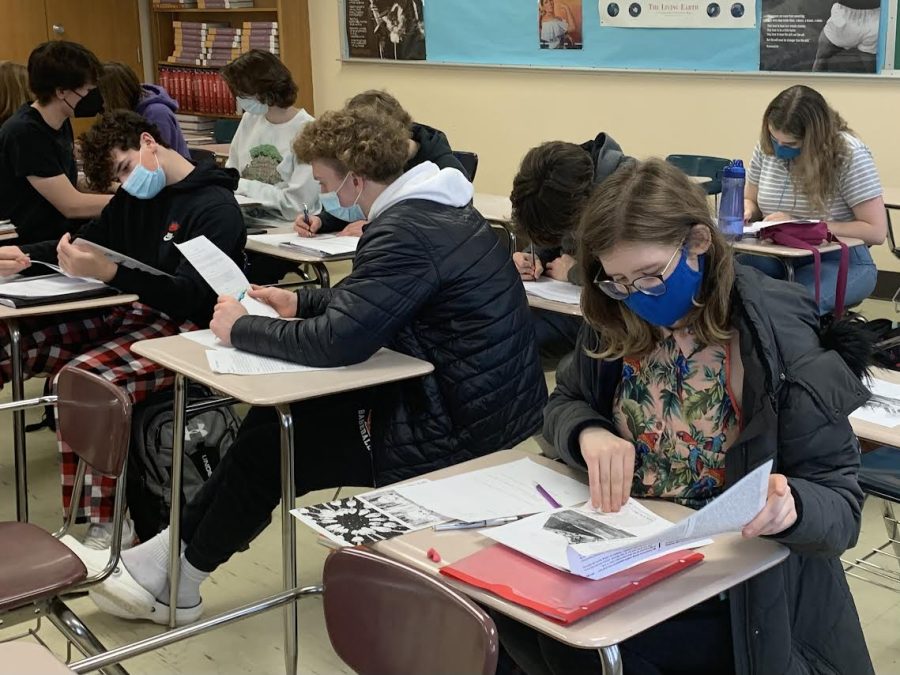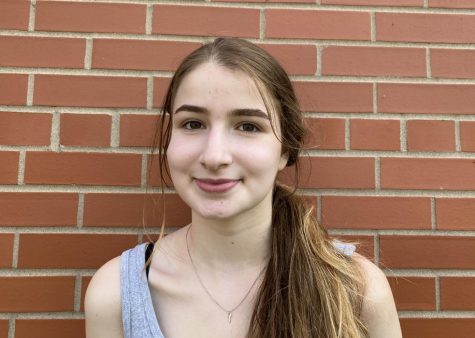A call for change
Desire for rehabilitated history textbooks brought to light
AP U.S History class takes notes Feb. 11. History textbooks have been the subject of criticism in recent years.
February 14, 2022
For students and teachers alike, history courses seem to come from an all-too-biased perspective, according to history teacher Jeffrey Cohen. For him, textbooks often lie at fault for spreading skewed, one-sided information.
“For so long of the country’s history, the textbook industry and many of the writers and contributors are mainly white men,” Cohen said. “It’s in this ingrained format that has always been there.”
Studying from sources that utilize a single narrative — that of a white man — can be dangerous, according to history teacher Jill Merkle. For her, it is crucial to be a cautious reader.
“‘What stories are they deciding to tell? How are they telling it, the language they use. All those kinds of things matter and where they place those stories matter a lot,” Merkle said.
Textbooks can be very undermining towards POC students, according to sophomore Rahma Aden.
“A lot of textbooks are written on (the basis of) white supremacy. There should be textbooks where they have the black point of view,” Aden said.
For junior Saynab Mohamed, the most effective way to change this very problem would be to do a full curriculum makeover.
“(We should be) getting rid of these old books that are from the 90’s that have all these racist remarks, that are teaching white supremacy and that white historical figures are good people when they are not,” Mohamed said.
History shouldn’t be about teaching through facts alone — it should be about connecting with people from different backgrounds and understanding their experiences, according to Merkle.
“(It is helpful) bringing in a lot of different texts that aren’t textbooks, that shows that this is what is actually going on culturally and socially,” Merkle said.
Cohen said the importance of limiting textbook usage in classes and finding alternate methods for teaching history.
“It’d be nice ultimately to find textbooks that were more diverse,” Cohen said. “ But until it has a more rounded approach, you’re gonna see more people doing what we do here — which is simply not using them.”




